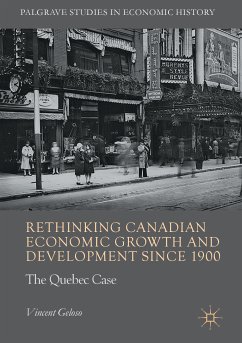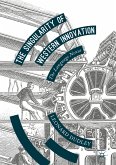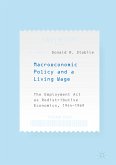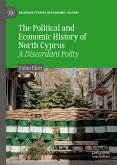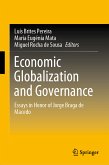This book upturns many established ideas regarding the economic and social history of Quebec, the Canadian province that is home to the majority of its French population. It places the case of Quebec into the wider question of convergence in economic history and whether proactive governments delay or halt convergence.
The period from 1945 to 1960, infamously labelled the Great Gloom (Grande Noirceur), was in fact a breaking point where the previous decades of relative decline were overturned - Geloso argues that this era should be considered the Great Convergence (Grand Rattrapage). In opposition, the Quiet Revolution that followed after 1960 did not accelerate these trends. In fact, there are signs of slowing down and relative decline that appearafter the 1970s. The author posits that the Quiet Revolution sowed the seeds for a growth slowdown by crowding-out social capital and inciting rent-seeking behaviour on the part of interest groups.
Dieser Download kann aus rechtlichen Gründen nur mit Rechnungsadresse in A, B, BG, CY, CZ, D, DK, EW, E, FIN, F, GR, HR, H, IRL, I, LT, L, LR, M, NL, PL, P, R, S, SLO, SK ausgeliefert werden.
Es gelten unsere Allgemeinen Geschäftsbedingungen: www.buecher.de/agb
Impressum
www.buecher.de ist ein Internetauftritt der buecher.de internetstores GmbH
Geschäftsführung: Monica Sawhney | Roland Kölbl | Günter Hilger
Sitz der Gesellschaft: Batheyer Straße 115 - 117, 58099 Hagen
Postanschrift: Bürgermeister-Wegele-Str. 12, 86167 Augsburg
Amtsgericht Hagen HRB 13257
Steuernummer: 321/5800/1497
USt-IdNr: DE450055826
Bitte wählen Sie Ihr Anliegen aus.
Rechnungen
Retourenschein anfordern
Bestellstatus
Storno

